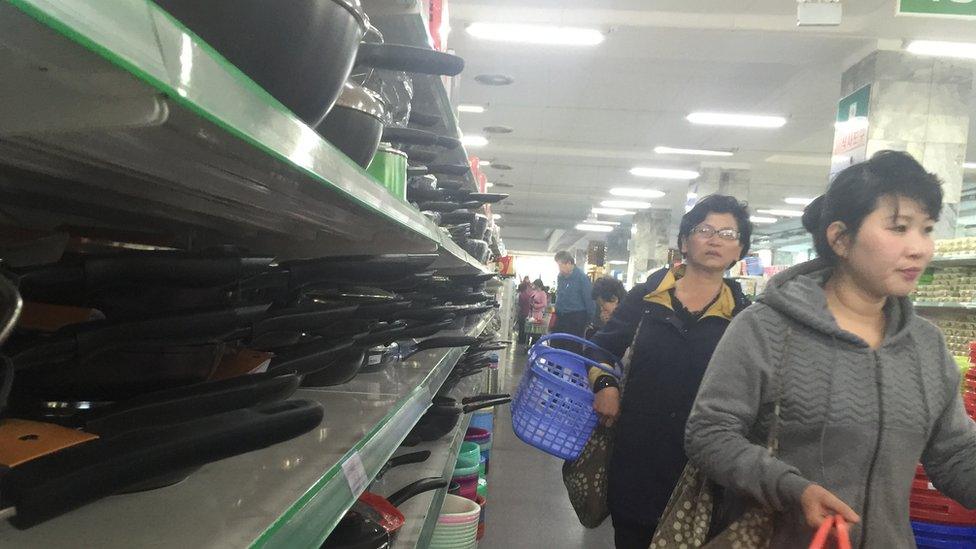What we learned in North Korea this week
- Published
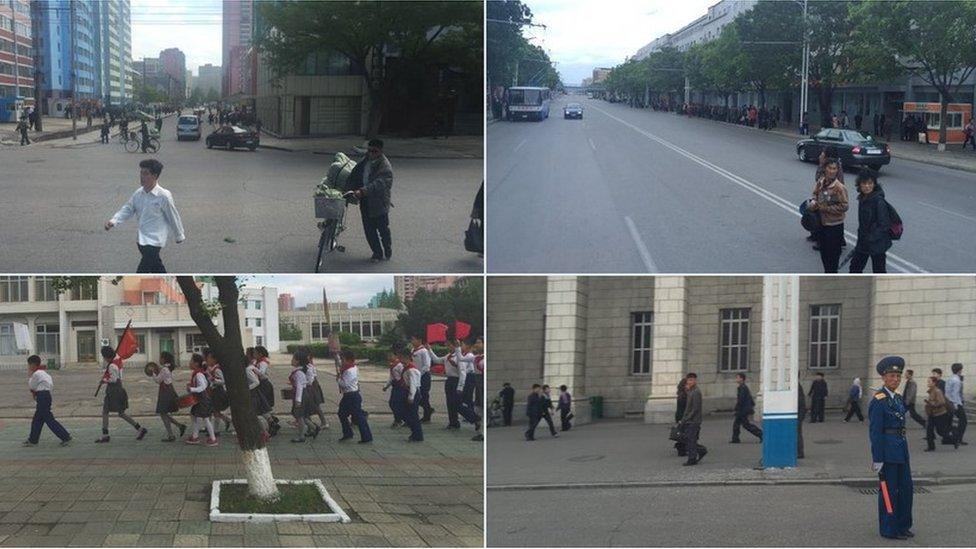
BBC journalist John Sudworth took these images of life in Pyongyang
On Friday, North Korea opened the first congress of its ruling party in a generation, and it was keen for the world to know.
More than 100 journalists, including a team from the BBC, made the trip to Pyongyang.
While the near-constant supervision by officials has made it difficult to venture very far, the trip has provided us, and other media outlets, with a look into what life is like in North Korea in 2016.
Here are some of the everyday things we have learned.
1) There's a lot more traffic in Pyongyang these days
The BBC's Rupert Wingfield-Hayes arrives in North Korea with, among others, a European prince
It's one of the first things our correspondent Rupert Wingfield-Hayes noticed - he last travelled to Pyongyang 12 years ago, and saw a big change this time. Rush-hour traffic does not seem to be a problem, though.
This is something John Sudworth, our Beijing correspondent, also spotted.
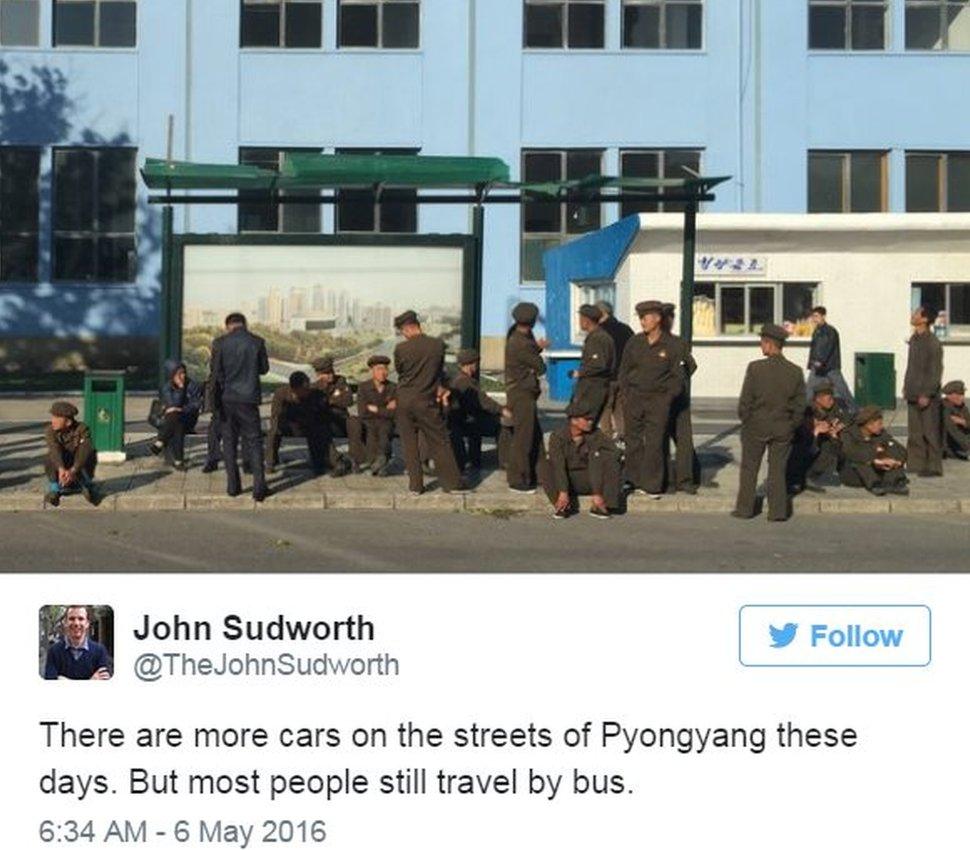
And of those increased cars on the roads, many of them are taxis. Anna Fifield, the Washington's Post Tokyo bureau chief, filmed a live broadcast on Periscope, external outside the venue of the Congress on Friday in which she pointed out the number of different taxis operating in the area.
She said there were some six different companies in the city and that a trip across Pyongyang costs close to $4, or £2.76.
2) Internet access if still limited, sort of
North Korea is preparing to stage its first party congress since 1980
Our Seoul correspondent, Steve Evans, was able to broadcast from outside Congress using Skype. Anna Fifield was able to broadcast live on Periscope using a secure VPN private network.
Otherwise, access to the wider internet is still restricted (although the country has its own internet).
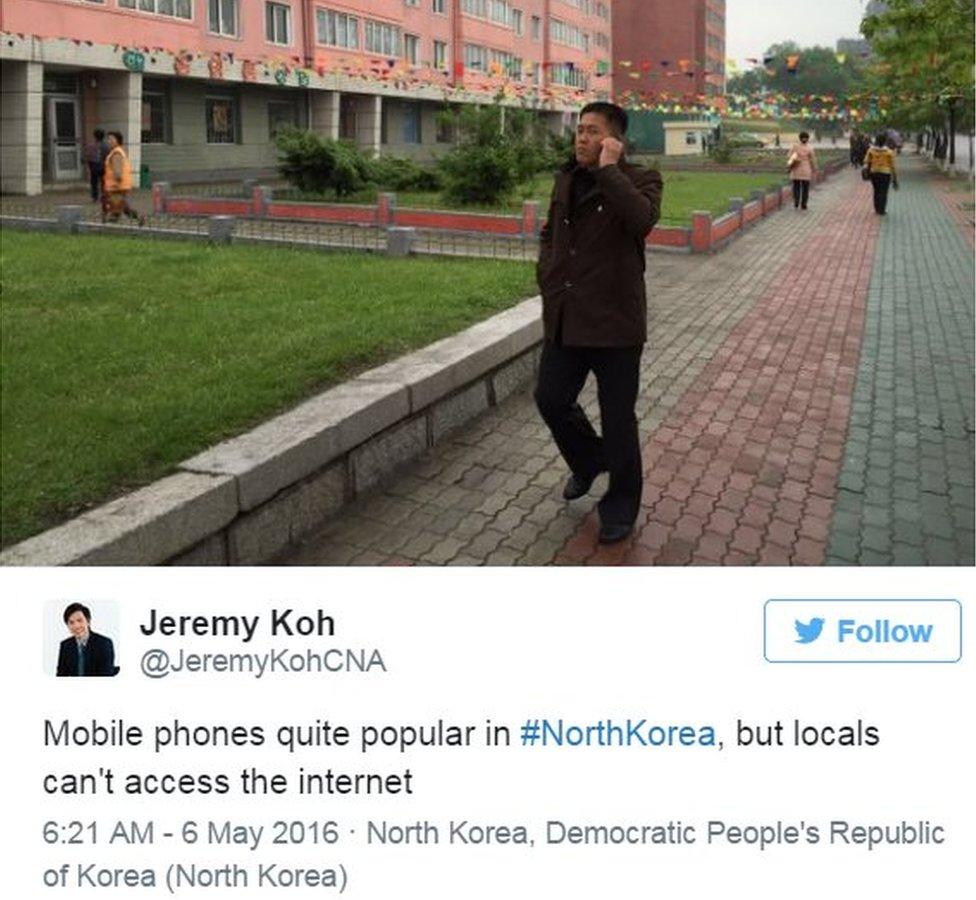
Channel News Asia correspondent Jeremy Koh is one of those in Pyongyang
Visitors can also access foreign sites like Facebook and Twitter while in North Korea through the Koryolink domestic network, Reuters reporter James Pearson wrote, external.
But North Korea now allows mobile phone SIM cards used by tourists to be active only for the duration of a tourist's visit - this makes it harder for North Koreans to get on the web illicitly, he said.
3) It's easy for the media to repeat how unusual it is to get into North Korea

(Sorry, we used the term 'rare glimpse' too).
4) North Korean TV was less interested than the foreign media in what was going on
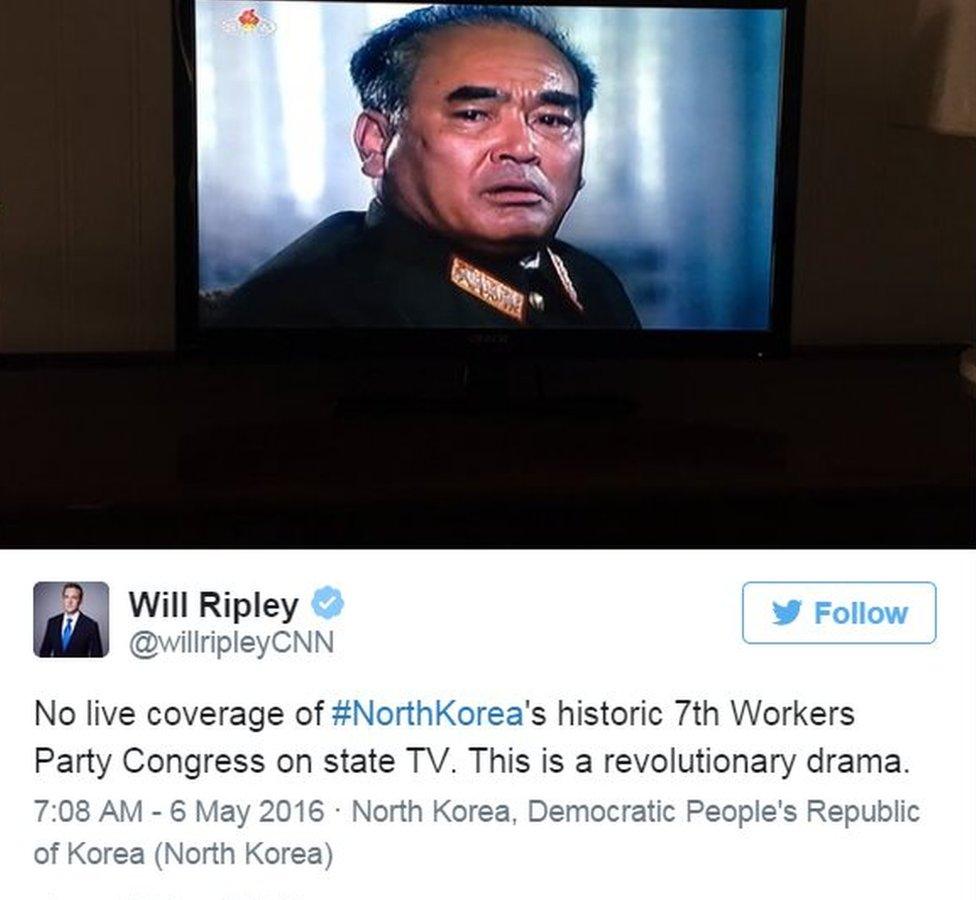
At least this was the case on Friday morning, Pyongyang time. There were reports that families were being encourage to watch coverage later in the day.
5) Alcohol is cheap - very cheap
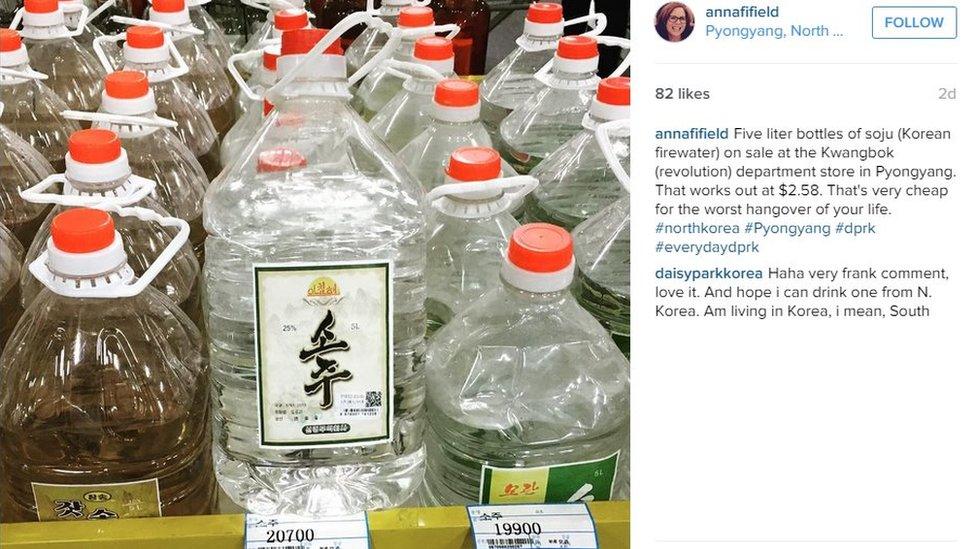
That's £1.78 for five litres of firewater
6) Young people speak good English
Rupert Wingfield-Hayes reports from North Korea's capital Pyongyang
7) There's a 'mini-boom' of small shops
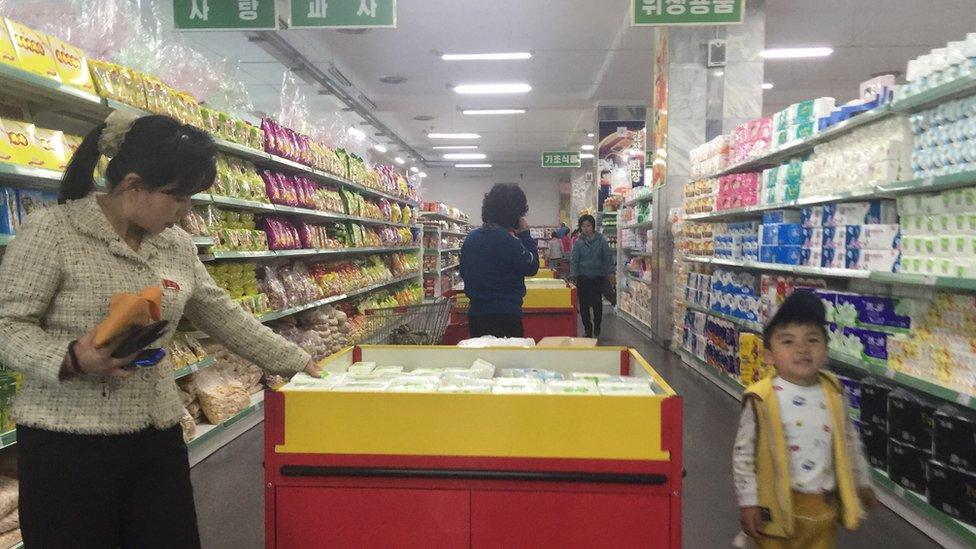
At the top end of the social scale there appears to be more choice than ever before
That was certainly what our man John Sudworth felt compared to his last visit in 2009. He saw markets and grocery shops on street corners across the city this time round.
A bottle of imported Japanese beer could be had for 35,000 Won, around $4.50 at the shop exchange rate.
But with wages on our Pyongyang farm averaging around 100,000 North Korean Won a month, at a price of 5,200 Won for a tin of pilchards, a farmer would be able to afford fewer than 20 tins a month.
8) There's a lot more that is unseen
Our team, and all journalists visiting this week, were closely monitored by officials. And they weren't allowed to stray from Pyongyang, the capital that is prosperous compared to other parts of the country.
As Anna Fifield said on her Periscope broadcast: "I can only report what I see, and I only see what they want me to see. My philosophy as a journalist is: It's always better to have some information than no information."
- Published30 April 2016
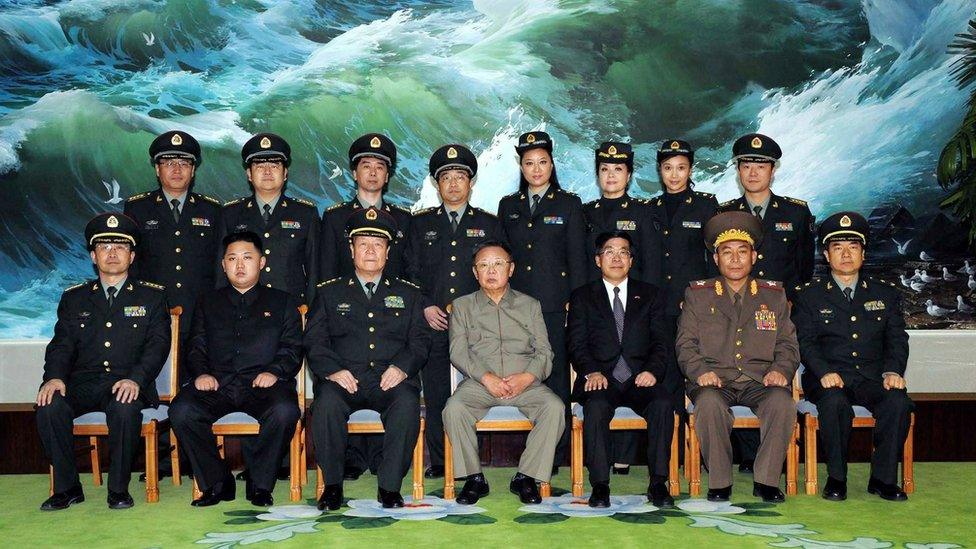
- Published16 June 2020
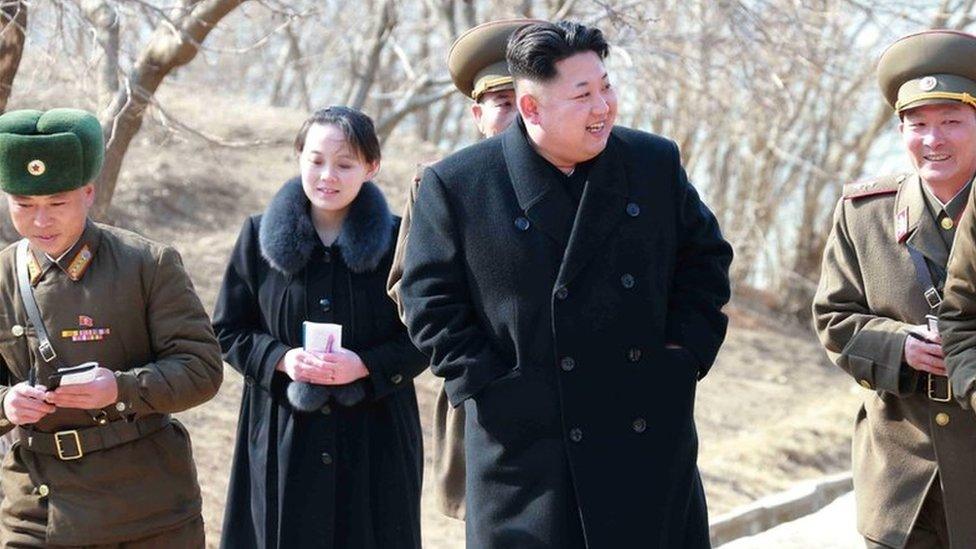
- Published1 May 2016
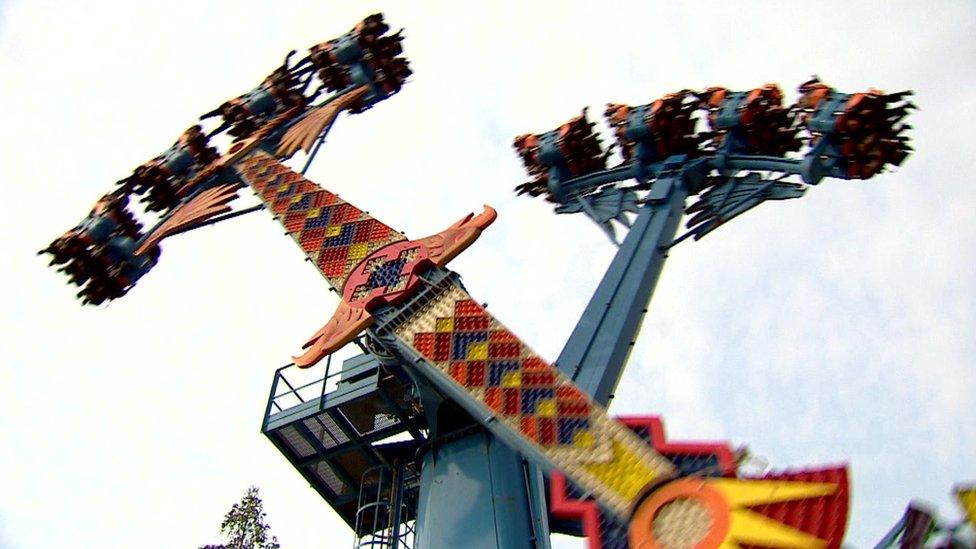
- Published6 May 2016
